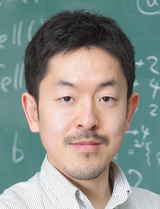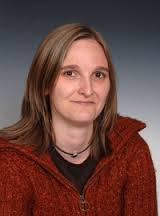ESPT@SC14 Workshop keynotes
Japanese HPC Update: Exascale Research and the Next-Generation Flagship Supercomputer
Abstract
As we approach the middle of the decade, quite a few of the TOP500 machines have already crossed over the peta-flop performance bar, while hundred peta-flop machines are also expected to appear in a few years. Further down the road towards exascale computing, the Japanese next-generation national flagship machine, primarily led by RIKEN AICS and Fujitsu, is targeted in 2020 to achieve hundred-fold improvements of application performances over the K computer. In this talk, we first introduce some of the recent notable results obtained by using the K computer, and present the current roadmaps towards next-generation post-petascale machines in Japan. We also give an overview of ongoing research and development projects for exascale computing in Japan.
Naoya Maruyama

Dr Maruyama is a Team Leader at RIKEN Advanced Institute for Computational Science, where he leads the HPC Programming Framework Research Team. His team focuses on high-level parallel frameworks for computational science applications to support productive and highly efficient computing with large-scale parallel systems such as RIKEN’s K computer. He is also the Principal Investigator for a JST Post Petascale System Software Project, where his team has been developing domain-specific programming models for mesh-based and particle-based applications that are primarily targeted to achieve high scalability and efficiency on large-scale GPU machines. Prior to joining RIKEN, he was an Assistant Professor at Tokyo Institute of Technology, where he co-led several forward-looking GPU-computing projects, which eventually led to the TSUBAME GPU supercomputer. He won several awards, including a Gordon Bell Prize in 2011. He received his Ph.D. in Computer Science from Tokyo Institute of Technology in 2008. He is a member of the ACM and IEEE Computer Society.
The Exascale challenge - are tools the key to success?
Abstract
Energy efficiency, massive scalability, IO performance and resilience are only some of the pieces in the Exascale challenge jigsaw that the HPC community needs to address (and solve) in the coming years. Application developers need unprecedented levels of insight into the behaviour of their codes and any underlying system features to tackle the challenge effectively. In this talk I will look at how these issues are being addressed in the EU-funded CRESTA (www.cresta-project.eu) and Adept (www.adept-project.eu) projects, and critically reflect on the current state of tools development and adoption.
Michèle Weiland

Dr Weiland is a Project Manager at EPCC, the supercomputing centre at the University of Edinburgh. She is the Project Coordinator for the EC Framework 7 funded project Adept (“Addressing Energy in Parallel Technologies”), which focuses on modelling the power usage and the performance of parallel software on a wide range of hardware architectures. Dr Weiland also leads a work package in the Exascale-focussed CRESTA project and is the PI for a collaborative project with the UK Met Office, developing the next generation cloud model. In the past, she has led the technical work in the EU FP7 funded project APOS-EU, which investigated optimisation techniques for scientific software on multi- and many-core architectures. Her research interests are in the fields of energy efficiency, software performance analysis and novel programming models. She is a recognised expert in her field and a member of the ETP4HPC Working Group on Programming Environments, and also regularly acts as a reviewer for HPC conferences and publications.

